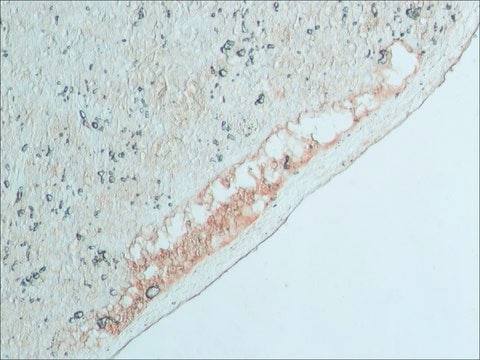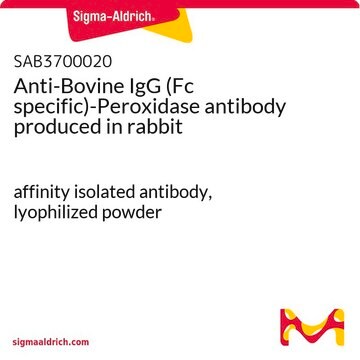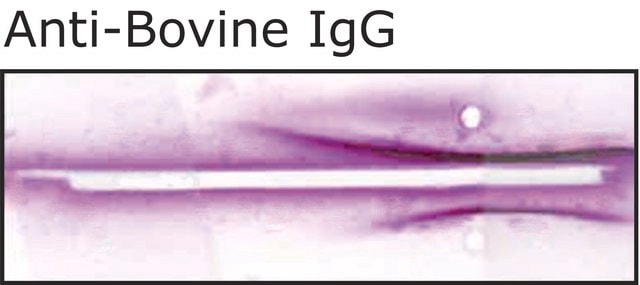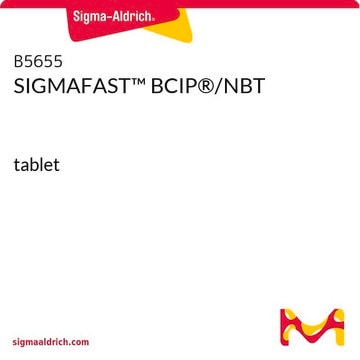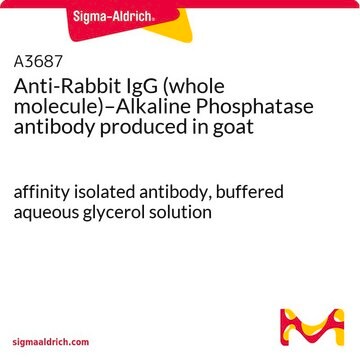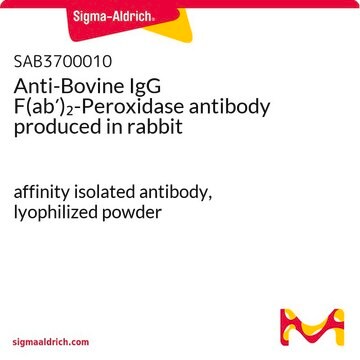A5295
Anti-Bovine IgG (whole molecule)−Peroxidase antibody produced in rabbit
affinity isolated antibody, buffered aqueous solution
Synonym(s):
Rabbit Anti-Bovine IgG (whole molecule)−HRP
About This Item
Recommended Products
biological source
rabbit
conjugate
peroxidase conjugate
antibody form
affinity isolated antibody
antibody product type
secondary antibodies
clone
polyclonal
form
buffered aqueous solution
species reactivity
bovine
technique(s)
direct ELISA: 1:20,000
dot blot: 1:80,000 (chemiluminescent)
immunohistochemistry (formalin-fixed, paraffin-embedded sections): 1:1,000
shipped in
dry ice
storage temp.
−20°C
target post-translational modification
unmodified
Looking for similar products? Visit Product Comparison Guide
Related Categories
General description
Immunogen
Application
- enzyme-linked immunosorbent assay (ELISA)
- bovine viral diarrhea virus (BVDV) plaque
- focus-forming assays
Biochem/physiol Actions
Physical form
Preparation Note
Disclaimer
Not finding the right product?
Try our Product Selector Tool.
Signal Word
Warning
Hazard Statements
Precautionary Statements
Hazard Classifications
Skin Sens. 1
Storage Class Code
12 - Non Combustible Liquids
WGK
WGK 2
Flash Point(F)
Not applicable
Flash Point(C)
Not applicable
Certificates of Analysis (COA)
Search for Certificates of Analysis (COA) by entering the products Lot/Batch Number. Lot and Batch Numbers can be found on a product’s label following the words ‘Lot’ or ‘Batch’.
Already Own This Product?
Find documentation for the products that you have recently purchased in the Document Library.
Customers Also Viewed
Our team of scientists has experience in all areas of research including Life Science, Material Science, Chemical Synthesis, Chromatography, Analytical and many others.
Contact Technical Service